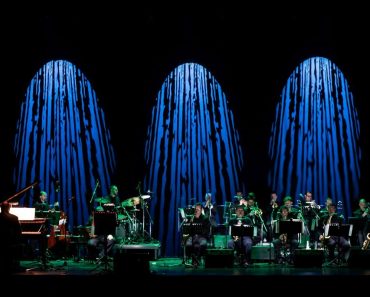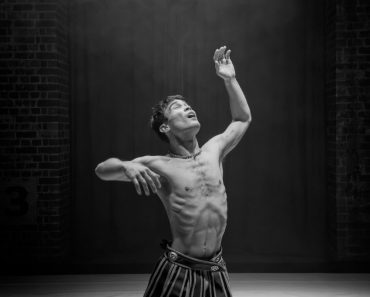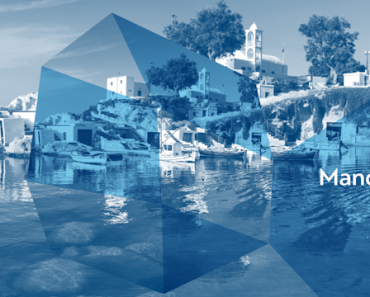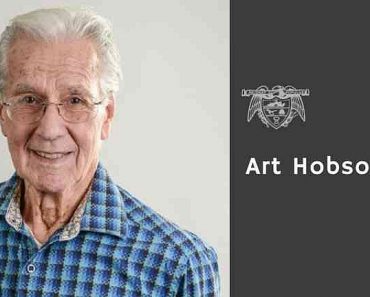The entrance to the offices of the Athens-Epidaurus Festival is located on Alkminis Street, in the Kerameikos neighborhood of central Athens, a couple of steps from Piraeus Street, the most representative of modern Greek cultural events: It has car repair shops, museums and traces of the industrial Athens of 1900, Greek music mega-venues, off-Broadway-style theaters, the School of Fine Arts and the old Piraeus 260 complex, which since 2006 has helped redefine the identity of the city’s festival venues.
Katerina Evangelatos’ personal office, extremely modern, spacious, bright, welcoming, full of color and elegant objects, has large windows that look out onto the small streets of Sfittion and Keiriadon. “They were two municipalities of ancient Athens,” she tells Kathimerini, explaining that she is always looking for the history of the street names where she lives.
We meet on the eve of this year’s festival, which celebrates 70 years, an anniversary that is also the last of her own six-year term as head of the institution. In September 2019, she was appointed artistic director and very soon was called upon to manage the consequences of the pandemic on culture.
“I was more of a crisis manager and less of an artistic director,” she had told Kathimerini in a previous interview. The second opportunity came with a second term, which ends on August 31. “I feel that I am delivering a festival that is robust, more international, with new platforms that have expanded it, with a renewed approach for society and a broader footprint,” she says when I ask for a brief assessment of what has been accomplished.
“And then?” I ask. “I need a period of calm,” she replies, although she has already informed me of her upcoming directorial venture, a production of “Lysistrata” in Hong Kong with Chinese actors, an invitation that followed the enthusiastic reception of “Hippolytus” at the 53rd Hong Kong Arts Festival.
It appears to me that she never gets lazy, and this is probably part of a legacy she received from her dedicated parents, her father Spiros and her mother Lida. As a baby, she followed her parents to Epidaurus, with her grandparents, Thanos and Kaiti Tasopoulou and her brother. The first official visit of the Amphi-Theater company in Epidaurus was in 1980, with Menander’s “Epitrepontes” (“Men at Arbitration”). Lida Tasopoulou, in a silent role, crossed the stage as the leader of a theatrical troupe, dragging a cart and with it the history of theatrical art.
“We lived in the Xenia hotel, where the theater groups were hosted at the time,” recalls Evangelatos. “When my brother and I grew up, we lived with our grandparents in Lygourio and the Xenia closed. Sometimes we would go to Epidaurus for just a few days, other times we would stay with my parents for the whole week. That was where the rehearsals, the performances, the games with the children of the artists were at. We hung out with Cecil Mikroutsikou, when [composer] Thanos was writing the music for the Amphi-Theater performances, with the Gaitanos family, [pianist, musicologist] Kostis and [pianist and music teacher] Betty [Barzouka], the great musicians who had a close relationship with my parents.”

I assume you also went swimming in the sea.
No. And I still never go swimming in Epidaurus. My mind is programmed differently when I’m there. Especially now, not at all. Also, when I go there for my own performance, I have no desire to go to the beach. We’re at the theater for lighting checks until 6 in the morning. I sleep until 12. I woke up and went back to the theater. And when I’m there to see performances by other directors, I watch, sleep, and then leave.
Theater has therefore been a personally lived experience for you over many years.
Of course, and this can be difficult, because growing up in such a way, you don’t distance yourself. But at the same time, you acquire an instinct. I remember that from my adolescence onward, during my years of study, my own view of theater began to gradually take shape. Growing up, we had very interesting discussions with my dad – and disagreements, many times.
As a director, you first entered Epidaurus in 2017, with Euripides’ “Alcestis,” a guest of the National Theater. Is Epidaurus always a challenge?
Yes, no matter how many times you direct there, Epidaurus forces you to feel it, to respect it. But if you are a smart director, respect does not hinder you. You pay attention to the space, the scale and the aesthetics it brings. You may want to go against this, but in any case, you must have studied the geometry and the general atmosphere of the space. You also have to think about practical issues, the flow of the audience, their behavior, and take into account that it has taken them two and a half hours to get there – most of them on the same day. You even have to think of the fact that they cannot lean their backs on the seat.
Is there ever an internal dialogue between you and your father, either as a director or as the artistic director of the festival?
‘Tragedy in Greece is an antiquated genre… I identified the problem mainly in the dramaturgy – I believe these works cannot be staged exactly as they were written at the time’
With my dad and my mom. When life brought me this position without me claiming it, as a great surprise, it was as if my entire family – three generations – had prepared my own destiny in an institution that was associated with us for many years – and gave my parents great joy, but also great bitterness.
‘Ancient drama is within us’
We discuss her tenure/work alongside her parents – prominent theater director and academic Spiros Evangelatos and leading actress Lida Tasopoulou – two people for whom ancient drama stood on a high artistic pedestal and who approached it, not with awe, but by defending the need for its investigation and redefinition. We also talk about the “stillborn art of theater,” especially in Greece, which insists on having a short memory and being indifferent to archives and structured theater studies. “Maybe today’s 20-somethings are unaware of it, but my parents broke quite a few eggs with their approach to ancient drama and their aesthetics,” she says.
Evangelatos herself also broke some eggs at the Ancient Theater of Epidaurus, choosing early on to include in her program performances by contemporary international directors who see ancient drama in a somewhat different way.
Was the renewal of the Epidaurus heritage one of the main pillars of your term as artistic director of the festival?
Yes, the evolution of this heritage. From the beginning, I felt confident in doing it because since I was a child I have been reading, listening to and seeing the serious study and research results of leading people in theater on the genre. It is also because I love ancient drama myself, I am very interested in it and will continue to be interested in it. So as artistic director, I felt that I was standing on firm ground when I proposed an entire system for dealing with the issue. Tragedy in Greece, with some exceptions, is an antiquated genre. Especially in recent years, there has been no systematic way of approaching it. Individual voices of creators have been trying to find something of their own – and I also include myself among them. I identified the problem mainly in the dramaturgy, that is, I believe that these works cannot be staged exactly as they were written at the time. Not because they are not good works, but because theater is the art of its time. It breathes in its time. It is no coincidence that, when they are staged abroad, mainly in Western Europe, the directors imbue the original material with intertextual references and loans or rewrite the works. There are freer approaches. The material that these works offers us hides something much broader and more extreme than we suspect.
How did you choose to address the subject of ancient drama?
From the beginning, I tried to organize myself on many fronts, but the central one was dramaturgy. I asked myself how I could renew the way that dramaturgs, writers and of course directors see these works today. So we did something that I believe is slowly bearing fruit and if it continues, will bear even more. First, we created a research program titled “Parodos,” which begins in Athens and continues in situ in the Little Theater of Epidaurus. It aims to renew dramaturgy, it is a workshop that studies ancient drama from completely different perspectives. Every year a different director takes it on, who addresses this subject in his own way in collaboration with a small team. Secondly, we created the Contemporary Ancients Cycle, within which writers are assigned the writing and then the production of new works and performances based on ancient drama, completely freely. We count about 20 titles now in the fifth year of this cycle. We have created a wonderful theatrical series of publications and we have seen performances in the Little and the Ancient Theaters of Epidaurus by Greek and foreign writers and directors, such as “odipus” by Maja Zade directed by Thomas Ostermeier, the play “Hecuba, not Hecuba” by Tiago Rodrigues, presented by the Comedie-Francaise company, and this year “Europa’s Pledge” by Wajdi Mouawad with Juliette Binoche.
Furthermore, through our winter program Open Plan, dance, fashion and applied arts meet ancient drama. Ancient drama is next to us, it is within us, we should not be afraid of it. It is something that does not fit in a showcase, it is a source of inspiration. You can turn it into a sculpture, you can turn it into a plate, you can study who Hippolytus is and make him a T-shirt, a ring, a coat. You can think of him as you sleep with a wonderful print on your sheet. All of these are not marketing moves, they are an overall look and a need. And they have excited the people who observe them.

Do you think the public was ready for them?
Some people, yes, some people, no. It’s just that those who speak louder are ignoring certain basic things. First, the developments in relation to the performing arts today. What is theater, dance and performance today? How has acting been transformed with cinema, television, and multimedia? How have the visual arts transformed? Second, in Greece there is a huge need to construct national ideals and not tear down the statues of our ancient ancestors. There is a deep silence, almost a gloom on this issue. However, the works of ancient Greek literature are much more modern, more daring than all those who criticize their modern performances suspect. Either they are half-educated or they do it because they are afraid; they are representatives of conservatism, which seeks to change nothing.
I want to believe that with this systematic, modest, but substantial and persistent effort, without bowing to pressure from various circles that do not want to see a composition made of plastic bottles – see [the work of director Frank] Castorf – or other scenery that they do not understand in Epidaurus, we managed to shift the established perception of things a little. This is also reflected in the numbers of visitors, but mainly it is seen in the reactions of the audience: in how they come to talk to us and in how they are immediately interested in new approaches. It is important to mention, however, that every year there is something for everyone in the program, that is, both more classical productions, but also more radical dramaturgical and directorial approaches.
What is the character of the festival that you are handing over to the next artistic director?
For me, the Athens-Epidaurus Festival is not a closed system. The revitalization of its character has placed us on the pan-European and global cultural map in a stronger position, opened up discussions within society and adopted actions with a broader footprint at a political and business level. I am handing over an extroverted festival, thanks to our co-productions as well as our world premieres in collaboration with leading European theater organizations, but also thanks to the huge orchestras we brought to the Odeon of Herodes Atticus, combining the biggest names of the modern avant-garde with the classics. It is also a festival strengthened in its mission to support Greek artistic groups, thanks to the establishment of “grape” – an acronym for Greek Agora of Performance – which is taking place for the third year this year, giving theater and dance creators the opportunity to present their works to representatives of international festivals and cultural organizations in a condensed five days, in order to secure an invitation to their own events. Our works have already been presented in more than 40 cities abroad, in America, Asia and Europe. It is a significant success.
We are also delivering a more modern festival. Thanks to the breadth of genres we embraced, we brought to the festival, with the participation of its entire artistic team, genres that were previously not considered festival-appropriate or were supposed to fit into smaller events. We managed to open these genres to a wider audience, which is why there has been a surge in ticket sales. We present contemporary electronic music at the Athens Conservatory at the Subset Festival, we participated in four films, and there is a huge boom in publications. The winter events brought us a large audience, who perhaps had never heard of us before. In addition, the Piraeus 260 experience became more comprehensive. We not only have much younger visitors, but we are presenting the musicians of the future to the public for free. There are people who come just to listen to music filling the “square,” and that was my dream from the beginning.
Finally, we deliver a very strong organization financially. For example, the income from sponsorships and donations, from the 80,000 euros that we found in 2019, amounts to approximately 3.3 million this year.
Has your personal life changed in these six years?
Obviously. It almost disappeared, because when I work for something, I am all-in. And here I gave it my all. Fortunately, I have a wonderful, very patient partner and dear friends, with whom we have been together for many decades. These people tolerated my absence and my moodiness, many times when I was facing difficult periods. The good things that were done are not only credited to me but also to those who supported me, to our excellent board of directors, as well as to all the people at the festival who are very experienced. Artistic direction requires strong nerves and for me it is important that regardless of who holds a position, there is continuity in the organization. We already have a nice collaboration with [director] Michail Marmarinos [who has been appointed the new artistic director of the festival], so that everything is done for the benefit of the institution. Besides, there is a relationship between us that goes back many years in the theater, from my first professional appearance in Epidaurus in 2001, as a member of the chorus, to this day, watching each other’s performances.







